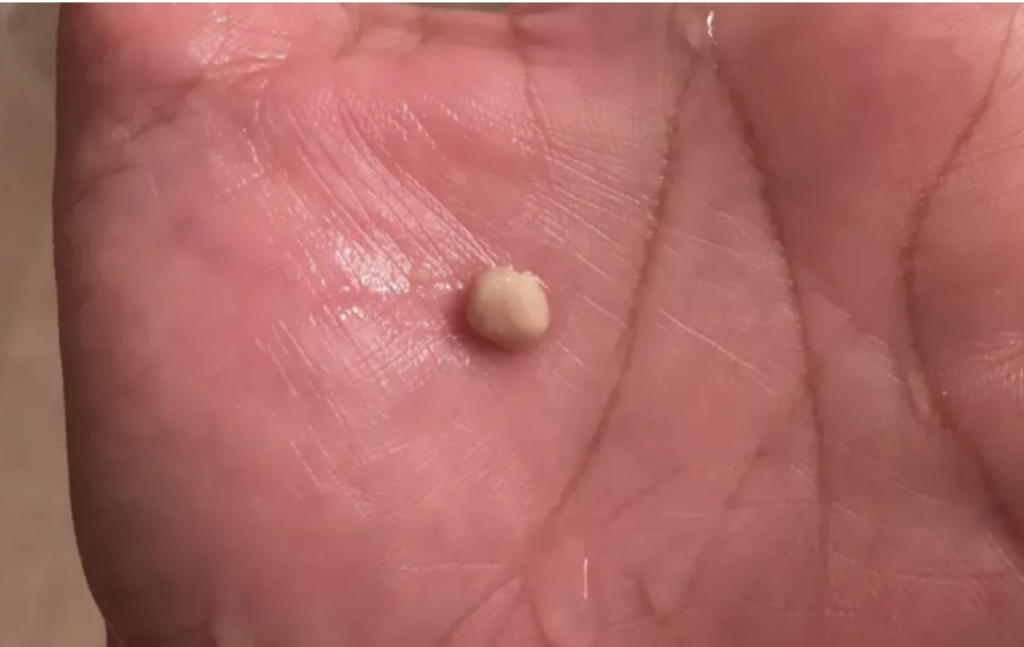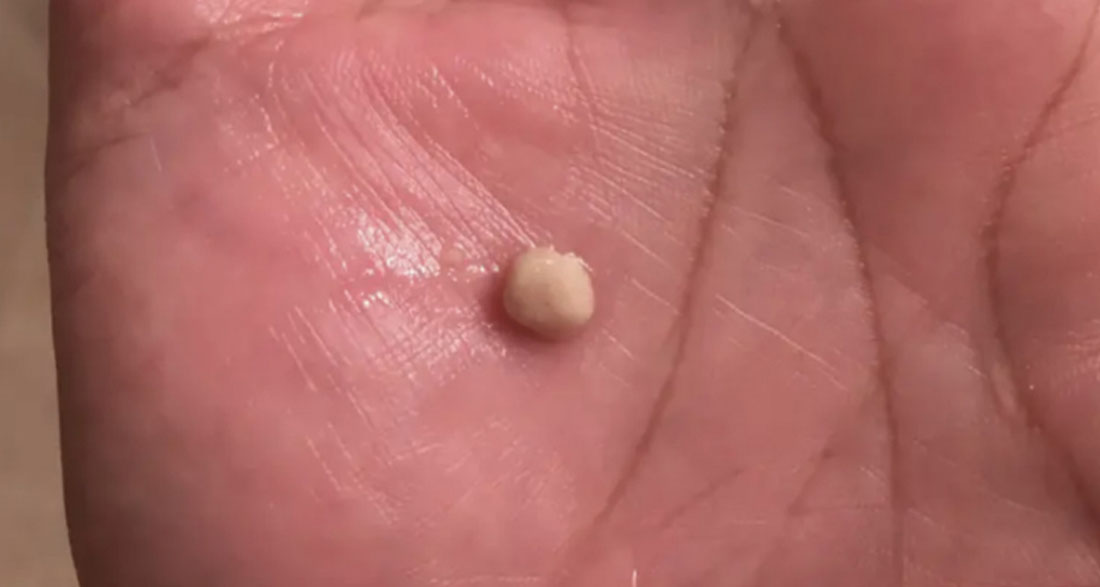Imagine dealing with a problem that’s not dangerous, but certainly uncomfortable and sometimes even embarrassing. That’s the reality for many people who experience tonsilloliths—small, whitish-yellow formations that can develop in the crevices of your tonsils.
While tonsil stones (as they are also called) aren’t usually harmful to your health, they can lead to some unpleasant side effects, such as bad breath or a sore throat.
So, what exactly are tonsil stones, and how can you deal with them? Let’s dive into the causes, symptoms, and ways to treat them, so you know exactly what to do if you ever find yourself facing this issue.

How Do Tonsil Stones Form?
Tonsil stones are created when tiny bits of food, bacteria, and dead cells get stuck in the nooks and crannies of your tonsils. Over time, these materials build up and harden, forming small, often smelly stones. It’s a bit like a tiny debris pile that your body doesn’t quite know how to get rid of.
Tonsil stones are most common in children and young adults, but they can happen to anyone at any age. In fact, older adults sometimes develop them too. If you’re wondering why this happens, it’s because the tonsils have crevices where particles can easily get trapped, and it’s a perfect environment for tonsil stones to form.
What Are the Symptoms of Tonsil Stones?
The size and location of tonsil stones can determine how they affect you. Common symptoms include:
- Bad breath (the most noticeable and embarrassing symptom)
- A sore throat
- Difficulty swallowing (especially if the stones are big)
- A metallic taste in your mouth
- Swollen tonsils that may feel sore or tender
- Ear discomfort
- A persistent cough that seems to linger
If you’re experiencing any of these, it could be a sign that you have tonsil stones. It’s a good idea to talk to a healthcare professional to get a proper diagnosis. They can confirm if tonsil stones are the cause of your symptoms and help you figure out the best way to deal with them.
How Are Tonsil Stones Diagnosed?
Diagnosing tonsil stones is usually pretty simple. Your doctor will start by asking about your symptoms and reviewing your medical history. Then, they’ll take a look at your throat to check for visible tonsil stones. Sometimes, they may need to perform additional tests like a throat culture or imaging to rule out other possible issues.
What Are the Treatment Options for Tonsil Stones?
Depending on the size and severity of the tonsil stones, treatment can vary. Some tonsil stones are so small that they may fall out on their own without any help. However, if you’re dealing with bigger stones that are causing pain or persistent bad breath, you have a few treatment options to consider:
- Self-removal techniques: Some people can remove smaller tonsil stones at home using a cotton swab or their finger. Just be careful, as you don’t want to hurt yourself in the process.
- Medicated gargles: Rinsing with mouthwash or saltwater can help reduce the discomfort and keep the area clean.
- Mouth irrigators: These devices use a gentle stream of water to help flush out the tonsil stones.
- Surgery: In rare cases, if tonsil stones are large or recurrent, a doctor might recommend removing them surgically.
Home Remedies to Help Relieve Tonsil Stone Discomfort
If you’re not ready to visit the doctor just yet or want to try some home remedies first, there are a few things you can do to feel better:
- Gargle with saltwater: Saltwater is soothing and can help reduce inflammation.
- Apple cider vinegar: Some people swear by gargling with diluted apple cider vinegar to break down tonsil stones and ease discomfort.
- Stay hydrated: Drinking plenty of water helps wash away food particles and bacteria that could lead to more stones.
- Brush and floss regularly: Keeping your mouth clean and free of debris can reduce the chance of tonsil stones forming.
How Can You Prevent Tonsil Stones?
While it’s not always possible to prevent tonsil stones, taking good care of your oral health can make a big difference. Here are some tips to help reduce your chances of developing them:
- Drink plenty of water to keep your throat and tonsils clean.
- Avoid smoking and drinking excessive alcohol, which can dry out your mouth and make it easier for bacteria to thrive.
- Brush and floss regularly to remove any leftover food particles and bacteria from your mouth.
- Make sure to see your doctor for regular check-ups so you can catch any issues early.
While tonsil stones are mostly a nuisance, they aren’t typically dangerous. If you experience persistent symptoms like bad breath or discomfort, it’s a good idea to visit a doctor for advice. They can help you find the right treatment and ensure that your tonsils stay healthy and stone-free.
What do you think about tonsil stones? Have you ever had to deal with them? Share your thoughts or experiences in the comments below!






